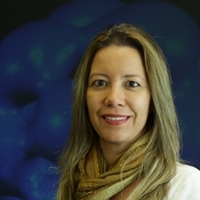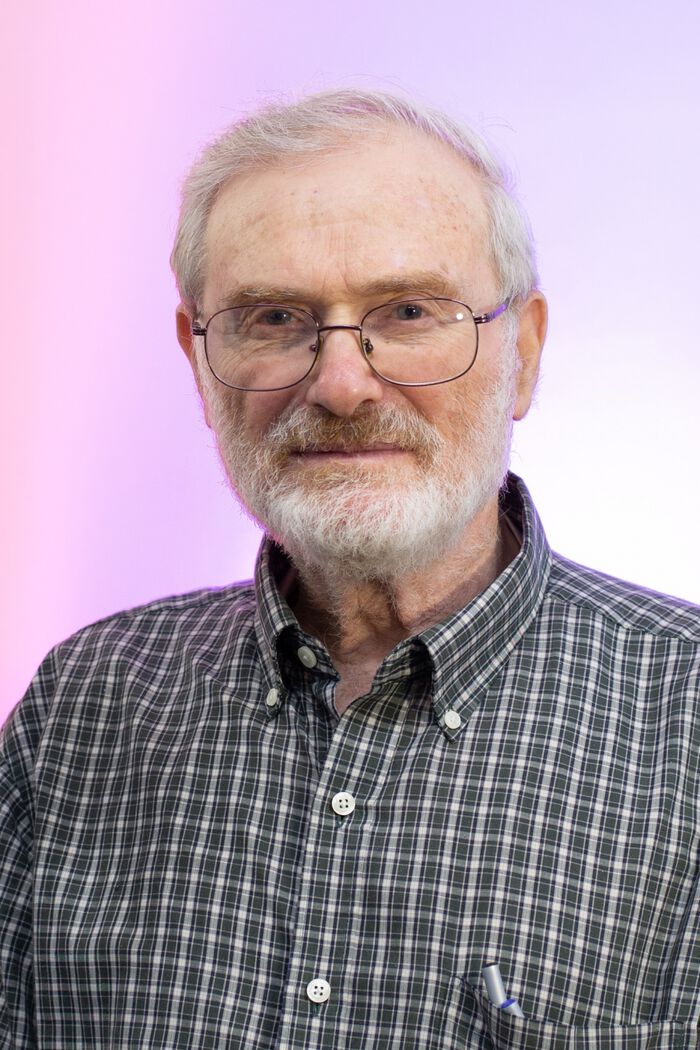Gjesteforelesninger og seminarer - Side 12
C*-algebra seminar talk by Ulrich Pennig
Abstract: Graphics processing units, or GPUs, offer significantly increased performance for some scientific computing workloads. But in the case of finite element simulations on unstructured meshes, the benefits of using GPUs are still the subject of an ongoing discussion for which there is no clear conclusion. We describe our work on improving the GPU acceleration of a finite element solver framework called FEniCS, where code is automatically generated for the user from a high-level description of their finite element problem. We use automated code generation to offload the assembly of linear systems to a GPU, while taking care that data transfers between CPU and GPU do not become a performance bottleneck. We provide examples to show that GPUs and automated code generation can be used to accelerate finite element solvers. Even though more work is needed to find efficient GPU-based linear solvers, our improvements to FEniCS can be used as a starting point for exploring the potential of GPU acceleration for finite element simulations.
This talk is part of the Mechanics Lunch Seminar series. That means 20min talks plus discussion in an informal setting.
Zoom: To obtain the Zoom meeting details please contact Timo Koch (timokoch at math.uio.no).
C*-algebra seminar talk by Rufus Willett
Abstract:Due to their large mass and small aspect ratio, icebergs pose a threat to boats and offshore structures. Small icebergs and bergy bits can cause harm to platform hulls and are more difficult to discover remotely. When there is a risk of collision between icebergs and platforms, it is necessary to deflect its drifting course to ensure safe human operations in polar offshore regions. In this talk, I will present iceberg towing experiments carried out on Svalbard in September 2020...
This talk is part of the Mechanics Lunch Seminar series. That means 20min talks plus discussion in an informal setting.
Zoom: To obtain the Zoom meeting details please contact Timo Koch (timokoch at math.uio.no).
Abstract: We report on the observation of gravity-capillary wave turbulence on the surface of a fluid in a high-gravity environment. By using a large-diameter centrifuge, the effective gravity acceleration is tuned up to 20 times Earth’s gravity. The transition frequency between the gravity and capillary regimes is thus increased up to one decade as predicted theoretically. A frequency power-law wave spectrum is observed in each regime and is found to be independent of the gravity level and of the wave steepness. While the timescale separation required by weak turbulence is well verified experimentally regardless of the gravity level, the nonlinear and dissipation timescales are found to be independent of the scale, as a result of the finite size effects of the system (large-scale container modes) that are not taken currently into account theoretically.
This talk is part of the Mechanics Lunch Seminar series. That means 20min talks plus discussion in an informal setting.
Zoom: To obtain the Zoom meeting details please contact Timo Koch (timokoch at math.uio.no).
Abstract: I will present a Biot-Stokes formulation created by Ricardo Ruiz-Baier. The formulations consists of a fluid-structure interaction model for flow of a Newtonian fluid, coupled with Biot consolidation equations through an interface, and incorporates total pressure as an unknown in the poroelastic region. I will also present a preconditioner for this system which is robust in all parameters and apply the model to a third circulation process to show the velocity fields in the brains subarachnoid space.
This talk is part of the Mechanics Lunch Seminar series. That means 20min talks plus discussion in an informal setting.
Zoom: To obtain the Zoom meeting details please contact Timo Koch (timokoch at math.uio.no).
C*-algebra seminar talk by Bram Mesland (Leiden)
C*-algebra seminar talk by Karen Strung (Prague)
Abstract: If a droplet smaller than the capillary length is placed on a substrate with a conical shape, it spreads by itself in the direction of growing fibre radius. We describe this capillary spreading dynamics by developing a lubrication flow approximation on a cone and by using the perturbation method of matched asymptotic expansions. The droplet velocity is found to increase with the cone angle but decrease with the cone radius. We show that a film is formed at the receding part of the droplet, much like the classical Landau–Levich–Derjaguin film. By using the approach of matching asymptotic profiles in the film region and the quasi-static droplet, we obtain the same film thickness as the results from the lubrication approach. Our results show that manipulating the droplet size, the cone angle and the slip length provides different schemes for guiding droplet motion and coating the substrate with a film.
This talk is part of the Mechanics Lunch Seminar series. That means 20min talks plus discussion in an informal setting.
Zoom: To obtain the Zoom meeting details please contact Timo Koch (timokoch at math.uio.no).
C*-algebra seminar talk by Amine Marrakchi (Lyon)
C*-algebra seminar talk by Yoshimichi Ueda (Nagoya)
C*-algebra seminar talk by Olof Giselsson
Abstract: Physics-informed neural networks (PINNs) are a new and promising methodology to combine deep learning with partial differential equations (PDE). PINNs extend deep neural networks by regularizing their output to fulfill any given PDE, allowing to solve both forward and inverse PDE problems utilizing high-performance machine learning libraries such as Tensorflow and PyTorch. This talk will give a short introduction to PINNs and provide a detailed, tutorial-style code demonstration on their implementation in PyTorch.
This talk is part of the Mechanics Lunch Seminar series. That means 20min talks plus discussion in an informal setting.
Zoom: To obtain the Zoom meeting details please contact Timo Koch (timokoch at math.uio.no).
C*-algebra seminar talk by Siegfried Echterhoff (Muenster)
William Robert Paul Denault (Department of Genetics and Bioinformatics, Norwegian Institute of Public Health) will give a talk on December 8th at 14:15 (held with restricted attendance in the Erling Sverdrups plass, Niels Henrik Abels hus, 8th floor and streamed in Zoom - the link will be sent by mail one day in advance).
Abstract: Intraluminal vesicle (ILV) formation plays a crucial role in the attenuation of growth factor receptor signaling. The endosomal sorting complex required for transport (ESCRT-0 to -III/VPS4) mediates this process. The general dogma has been that upstream ESCRTs (0 to II) sequester receptors at the surface of endosomes and the downstream ESCRTs (III/VPS4) remodel the endosome membrane leading to the abscission and formation of receptor-containing ILVs. We now show that upstream ESCRTs not only sequester cargo, but in addition play a crucial role for the initiation of membrane shape remodeling in ILV budding. Through a combination of mathematical modeling and experimental measurements we show that upstream ESCRTs facilitate ILV budding by crowding with a high density in the membrane neck region.
This talk is part of the Mechanics Lunch Seminar series. That means 20min talks plus discussion in an informal setting.
Zoom: To obtain the Zoom meeting details please contact Timo Koch (timokoch at math.uio.no).
C*-algebra seminar talk by Mario Klisse (Delft)
Carla Janaina Ferreira (DNV GL) will give a talk on November 24th at 14:15 (held with restricted attendance in the Erling Sverdrups plass, Niels Henrik Abels hus, 8th floor and streamed in Zoom - the link will be sent by mail one day in advance).
Abstract: Due to the fluid nature of biological membranes, proteins are able to diffuse along the membrane surface. Additionally, several processes of vesicle formation require protein recruitment. We discuss, on one hand, the implications of fixed membrane shapes in protein diffusion, and on the other hand, the effects of protein diffusion and recruitment in membrane shape transformation.
This talk is part of the Mechanics Lunch Seminar series. That means 20min talks plus discussion in an informal setting.
Zoom: To obtain the Zoom meeting details please contact Timo Koch (timokoch at math.uio.no).
C*-algebra seminar talk by Eduardo Scarparo (NTNU)
Abstract: Magnetic Resonance Elastography (MRE) is an emerging technique to measure the bio-mechanical properties of tissue in vivo. We present measurements of the shear modulus in healthy subjects, and in patients with brain cancer.
This talk is part of the Mechanics Lunch Seminar series. That means 20min talks plus discussion in an informal setting.
Zoom: To obtain the Zoom meeting details please contact Timo Koch (timokoch at math.uio.no).
Steffen Grønneberg (Department of Economics, BI Norwegian Business School) will give a talk on November 10th at 14:15 (held with restricted attendance in the Erling Sverdrups plass, Niels Henrik Abels hus, 8th floor and streamed in Zoom - the link will be sent by mail one day in advance).
Abstract: Upon burst, air bubbles release droplets that transfer biological and chemical materials from water bodies to the atmosphere. This mechanism is one of the main sources of cloud condensation nuclei and participates to airborne contamination when the bulk water contains pathogens. Predicting the size and composition of droplets emitted by bubbles requires a fundamental understanding of their dynamic at the surface, yet a consistent physical picture is lacking. Relying on experimental data from bubbles generated in various environments and using scaling analysis, I will show that surface tension gradients control the drainage of bubbles. I will also explain how local perturbations of surface tension can explain their seemingly stochastic burst mechanism. Consequences for application purposes will be mentioned throughout the presentation: I will notably take the examples of bubbles in saltwater and in water contaminated with bacteria.
This talk is part of the Mechanics Lunch Seminar series. That means 20min talks plus discussion in an informal setting.
Zoom: To obtain the Zoom meeting details please contact Timo Koch (timokoch at math.uio.no).
Now it's time for the traditional PhD/postdoc-gathering for Stochastics and Risk which will take place in Abels Utsikt and online on October 28th, 09.30 - 16.30. All PhD students and postdocs have the opportunity to give a 15-minute talk on their research. In addition, Jocelyne Bion-Nadal (École Polytechnique) will give an introductory talk and Kristina Rognlien Dahl (UiO) will introduce the SCROLLER project. As a member of the section, you can attend either in person or online. Welcome!
Benjamin Kedem (Department of Mathematics, University of Maryland, USA) will give a talk on October 27th at 14:15 in Zoom - the link will be sent by mail one day in advance).



